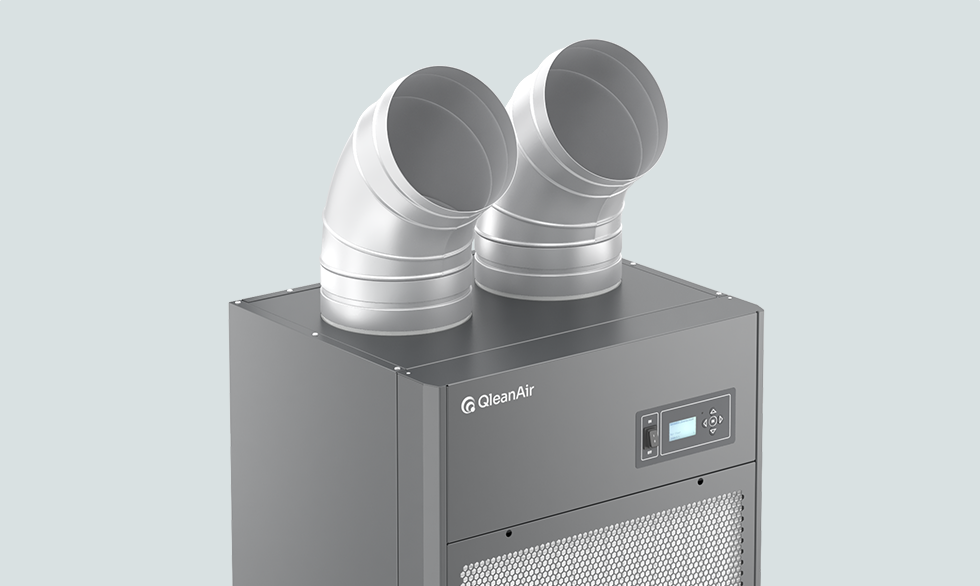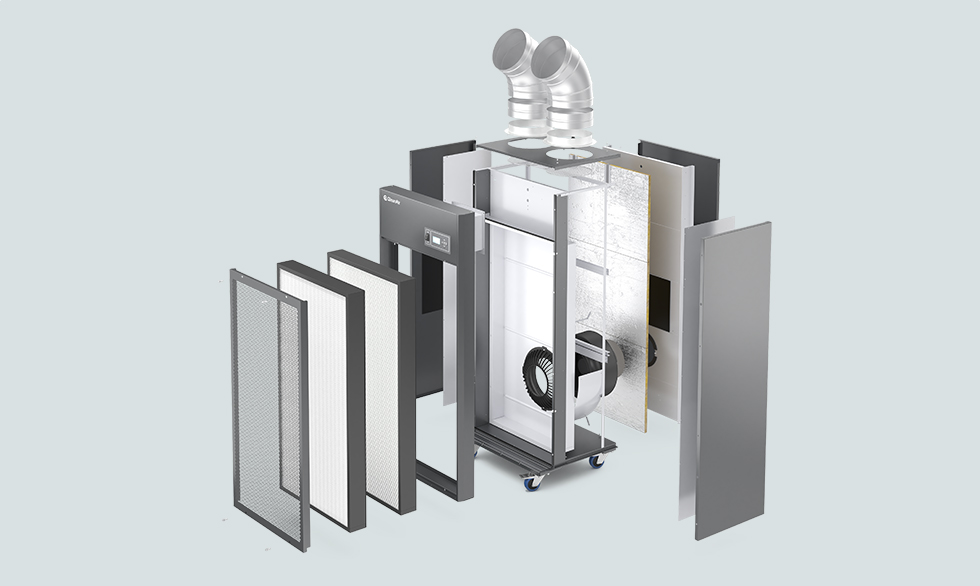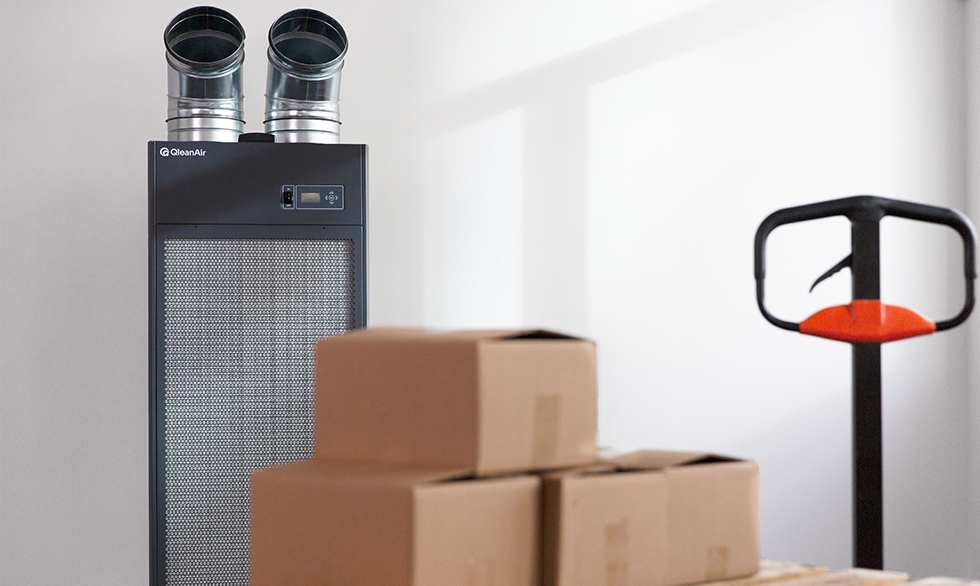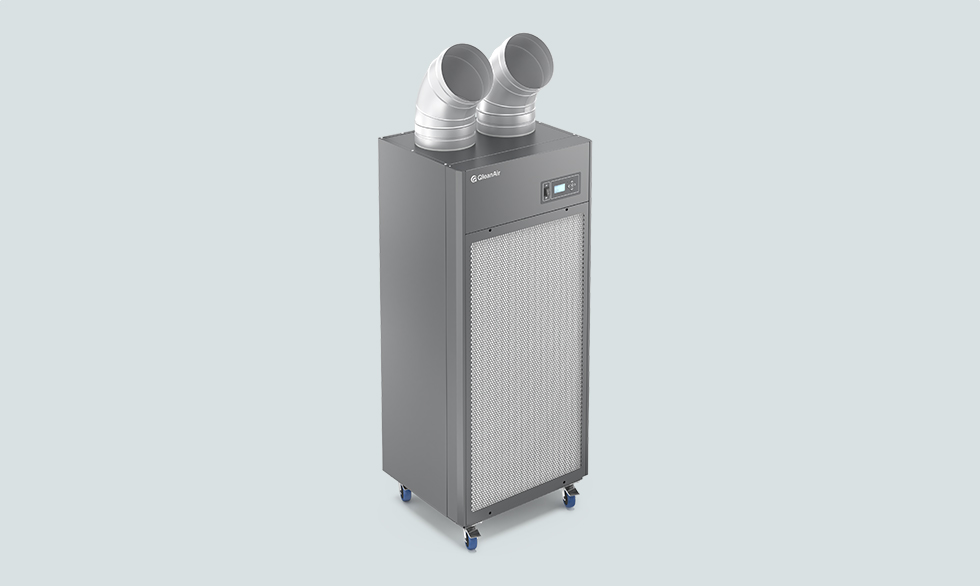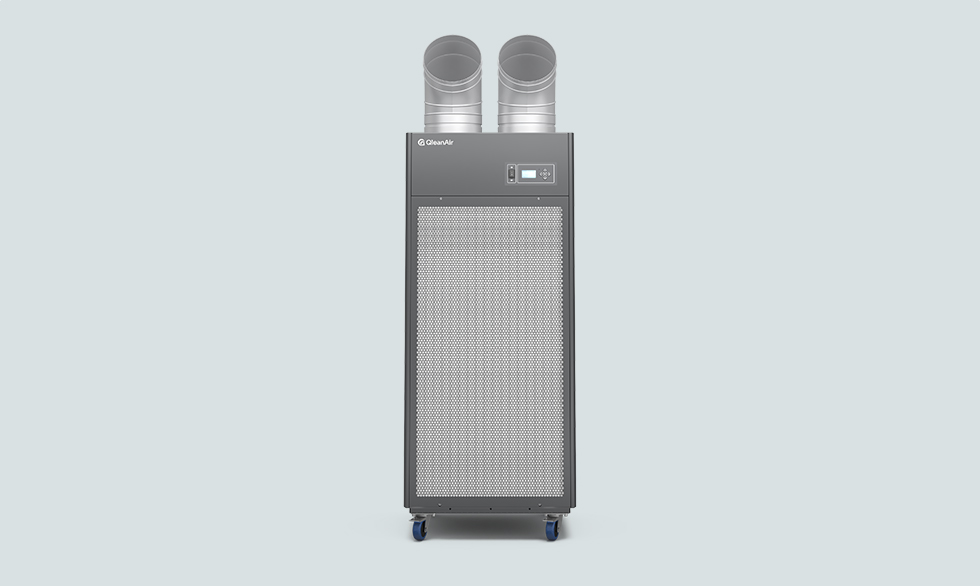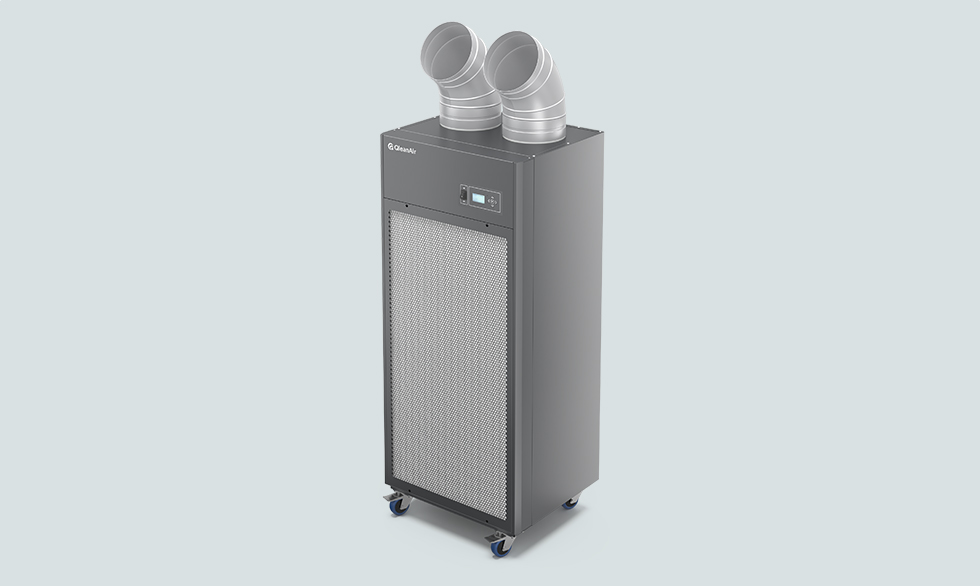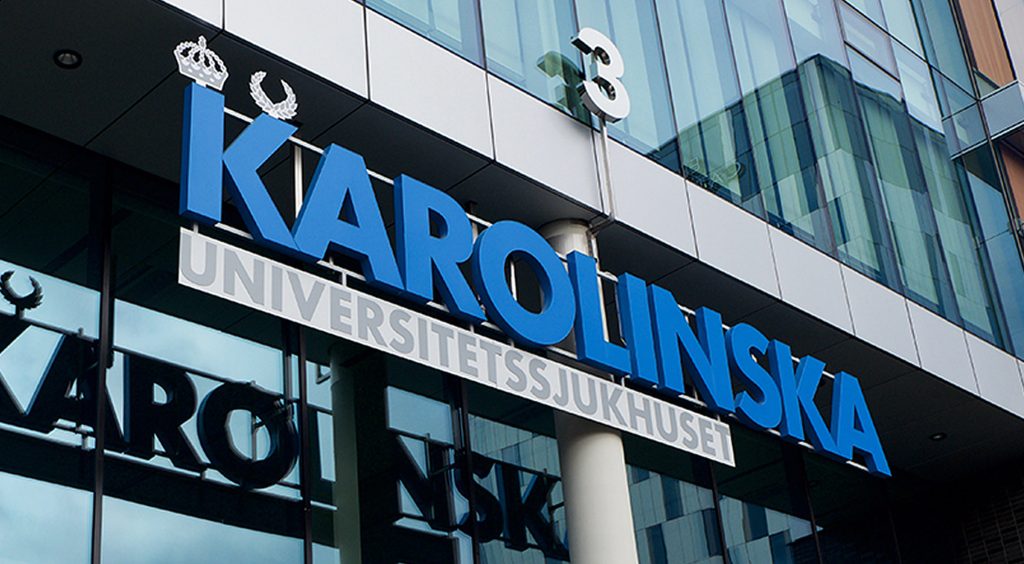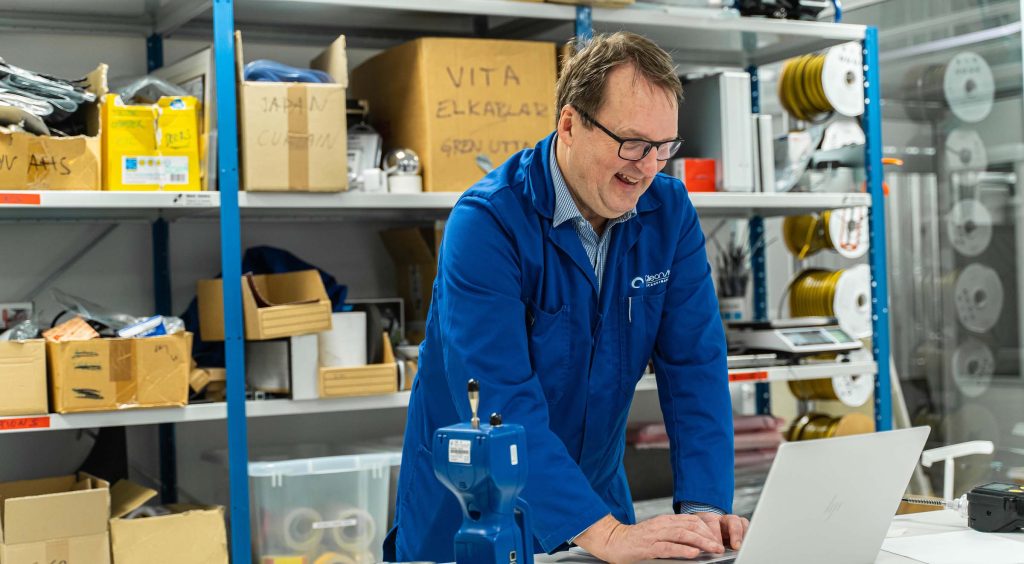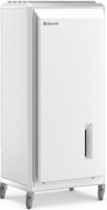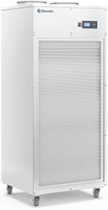Products / Air cleaners
QleanAir FS 70 HEPA
The most versatile HEPA air cleaner on the market
Powerful, quiet and flexible, FS 70 HEPA is ideal for offices, schools, hotels, healthcare and care facilities and other shared spaces in need of healthy and safe air. It captures at least 99.995% of the most elusive particles like viruses and bacteria with certified HEPA 14 filter. For critical sectors like healthcare, it is crucial to choose an air cleaner without any housing leakage. FS 70 HEPA was first put into production for Karolinska University Hospital during the COVID-19 pandemic.
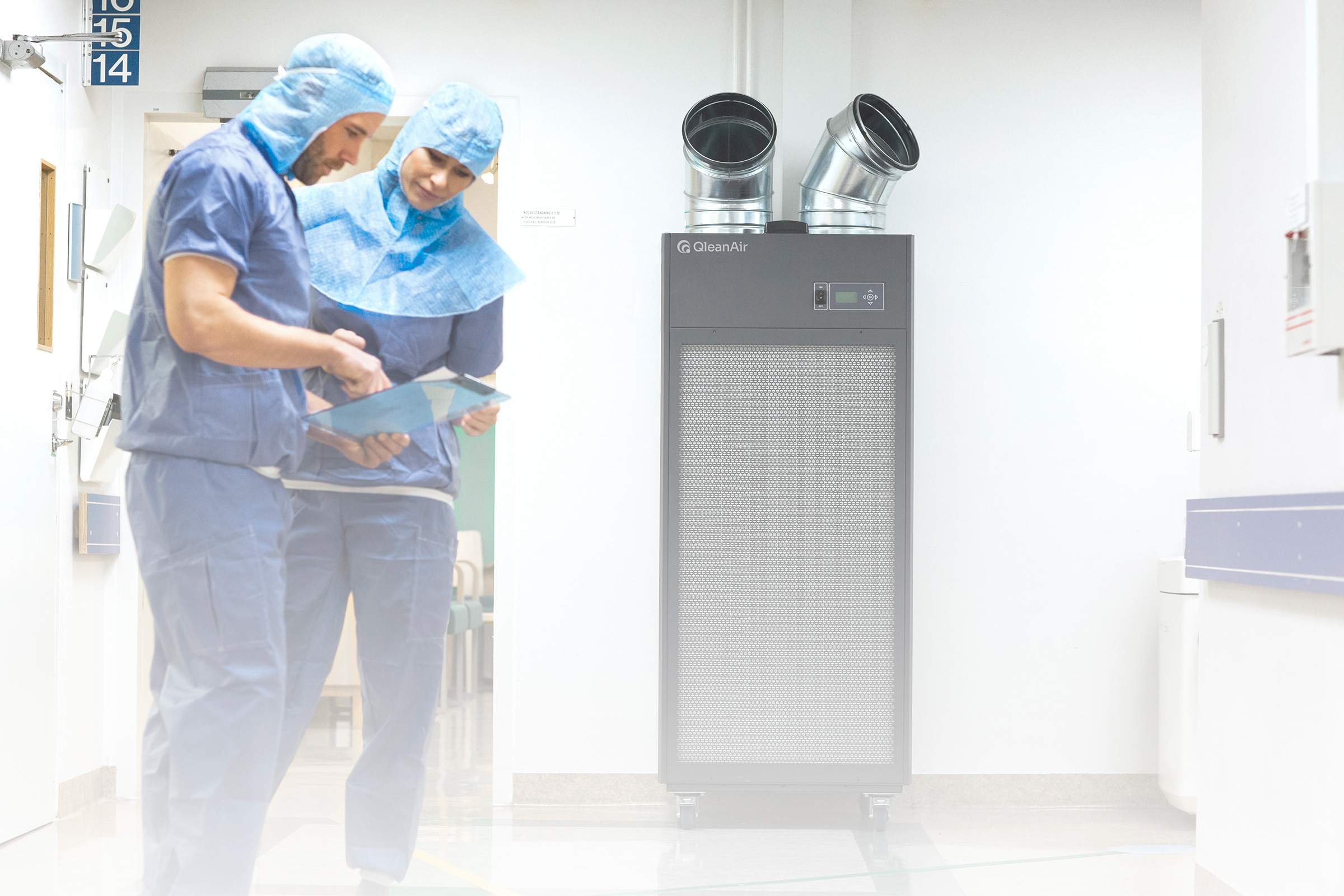
Key components of the QleanAir FS 70 HEPA air cleaning solution
- Multi-stage mechanical filtration and preventive service ensure function and efficient air cleaning over time
- HEPA 14 and F7 filters, classified according to EN 1822 and ISO 16890 standards
- Third-party verified system filtering efficiency of 99.995% or more
- Quiet operation, <30-63 dB(A)
- Airflow of up to 2000 m3/h
- Operates independently of heating, ventilation, and air-conditioning systems
- Scheduled service plan with filter replacement and upgrades
- Lifetime Performance Guarantee

This product can be delivered with QleanAir Connect, our new platform for connecting air cleaners and air quality sensors with a management system. Using a cloud solution, the quality of the air and functionality of the air cleaners can be monitored and controlled remotely. This allows for optimization and automatization of the air cleaners performance and real-time control over the air quality.
Benefits
FS 70 HEPA will provide you with safer, cleaner indoor air. Cleaner air means healthier and more productive people with less absence. A safe environment is attractive to your employees and customers. FS 70 HEPA is quiet, powerful and flexible. The unit works independently of the ventilation system, uses the standard power socket, and can be easily relocated. We deliver clean air as a service with hassle-free installation, maintenance, upgrades and filter changes. With our unique Lifetime Performance Guarantee, we can guarantee you consistent air quality over time.
The technology behind the solution
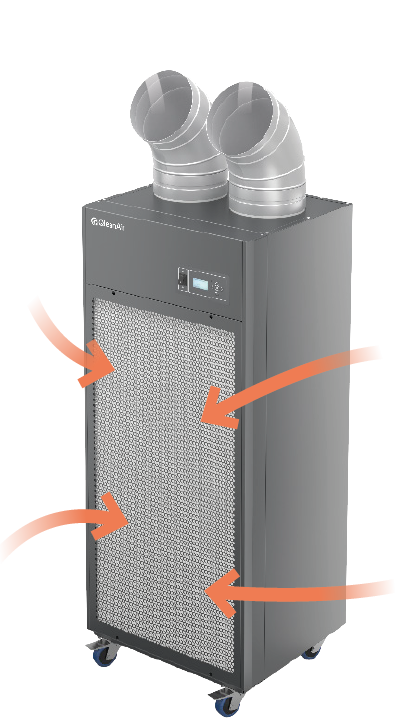
The technology behind the solution
-
1. Air inlet
The air inlet of FS 70 HEPA is strategically placed at the front of the unit to maximize the intake volume. For safety reasons, the inlet is protected by a grid.
-
2. Filtration of particles
With the help of a multi-stage mechanical filtration system with HEPA 14 filter, even the smallest particles and airborne pollutants are captured and removed from the air.
-
3. Cleaned air is returned to the environment
After the air has been cleaned from harmful particles, it is returned back into the room. The outlet, located on top of the air cleaner, can be adjusted for optimal effect.

Compliant with the new VDI expert recommendation
QleanAir FS 70 Standard, equipped with the new accessories AAO and SSF, is compliant with the new expert recommendation VDI-EE 4300-14 for air cleaners. Reducing aerosol levels in the room by 90% in 30 minutes, quiet operation and without disturbing turbulence in a design that resists unauthorized changes of settings.

Compliant with the new VDI expert recommendation
QleanAir FS 70 Standard, equipped with the new accessories AAO and SSF, is compliant with the new expert recommendation VDI-EE 4300-14 for air cleaners. Reducing aerosol levels in the room by 90% in 30 minutes, quiet operation and without disturbing turbulence in a design that resists unauthorized changes of settings.
| Model | QleanAir FS 70 HEPA | ||
|---|---|---|---|
| Color | |||
| Dimensions (w x h x d) | 692 × 1527 × 580 mm | ||
| Dimensions on wheels | 692 × 1652 × 580 mm | ||
| Material | Powder coated sheet metal | ||
| Weight | 124 kg | ||
| Installation | Stationary, mobile or wall mounted | ||
| Performance levels | Seamless/3 positions | ||
| Electronic display | Yes | ||
| Alarm functions | Filter full/Fan failure/Safety shutdown |
|
|
| Airflow | Up to 2000 m³/h* | ||
| Pre-filter | ePM1 60% (F7) | ||
| Main filter | HEPA 14 |
|
|
| Sound level | <30-63 dB(A) | ||
| Power supply | 200-240V, ~50-60 Hz, 3.3A | ||
| Energy consumption | 9-730W |
|
|
| Certifications and compliance |
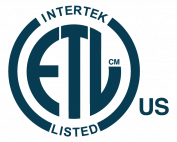
|
||
*Operating airflow depends on filter configuration and operational environment


